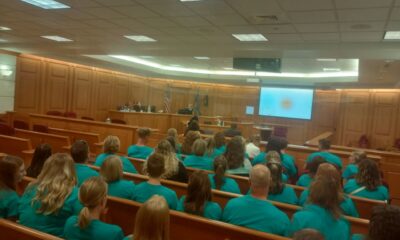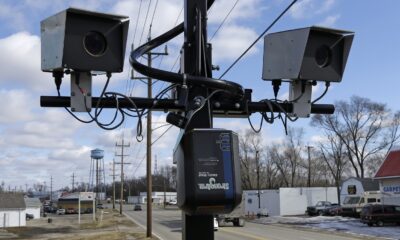National
Sex assault testing effort yields first charges in Wisconsin

MADISON, Wis. — Republican Attorney General Brad Schimel’s effort to analyze untested sexual assault evidence kits has produced its first criminal charges.
The state Department of Justice announced Tuesday that prosecutors have filed one count of second-degree sexual assault and one count of third-degree sexual assault against 29-year-old Aaron Heiden of Eau Claire. The charges were filed Monday in Winnebago County.
According to a criminal complaint, a woman met Heiden at a Darboy bar in August 2008. He identified himself only as “Alex.” She took him to her Menasha home and the two began to have sex. Heiden became violent, slamming her against a wall when she told him to stop. He later left.
The woman underwent a sexual assault exam at an Appleton hospital. An examiner documented bruises on her legs and feet and genital tears. Investigators were able to put together a partial DNA profile but it didn’t match anyone, according to the complaint, and the case languished.
Schimel began a project in 2016 to test thousands of unanalyzed sexual assault kits sitting on police department and hospital shelves. The state crime lab received the woman’s kit in February 2017 and was able to put together a fuller DNA profile from material taken from the victim’s fingernails.
The DOJ ran the profile through the FBI’s national criminal database and matched it in April to Heiden, who had been convicted of drunken driving in 2016 in Eau Claire County. Wisconsin law requires anyone convicted of a misdemeanor crime to submit a DNA sample.
State agents and sheriff’s deputies arrested Heiden in Eau Claire on Tuesday and moved him to the Winnebago County jail. Online court records didn’t list an attorney for him.
Asked about the 10-month delay in obtaining the match and the arrest, DOJ spokeswoman Rebecca Ballweg said the case was complex and all cold cases require extensive investigation.
DOJ officials declined to comment when asked why the woman’s kit was never tested, because her case is now pending in court.
Tens of thousands of sexual assault evidence kits have gone untested in the U.S. for a variety of reasons. Prosecutors may have decided cases were too weak to pursue or been forced to drop cases because victims wouldn’t cooperate. Sexual assault victim advocate groups have been pushing states since 2014 to analyze the kits anyway in hopes of identifying serial offenders.
Testing on Wisconsin kits during the last half of 2017 yielded DNA profiles that match 20 known offenders in the FBI’s database, including 11 who weren’t listed as a suspect in the original case.







